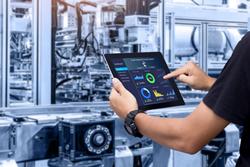How Industry 4.0 will be impacted by technology
Diogo Costa for KnowTechie: Many have heard of Industry 4.0, but miss the exact meaning of the term. It is used to define a trend that develops from the concept of smart factories, which relate and articulate virtual and physical systems, combined in networks and digital platforms with global viability, providing new and revolutionary value chains.
The idea is that we are going through a fourth industrial revolution – therefore, 4.0. This revolution is digital and is driven by technology: Internet (and its widespread use), artificial intelligence, automation, machine learning, and the improvement of sensors, making them smaller and enabling to become part of the so-called “Internet of Things” (IoT), are just a few examples of that.
Many argue that a great deal of these technologies have in fact come from the third industrial revolution, but they themselves have developed a great improvement in recent years. The enhancement of these technologies, combined with the recent innovations, have brought unprecedented possibilities that can characterize the fourth industrial revolution.
There are several aspects that characterize Industry 4.0, including (but not limited to): automated robots, additive manufacture, simulation, horizontal and vertical system integration, industrial IoT, big data and analytics, cloud, cybernetic security, augmented reality, and more. Full Article:
Comments (0)
This post does not have any comments. Be the first to leave a comment below.
Featured Product

